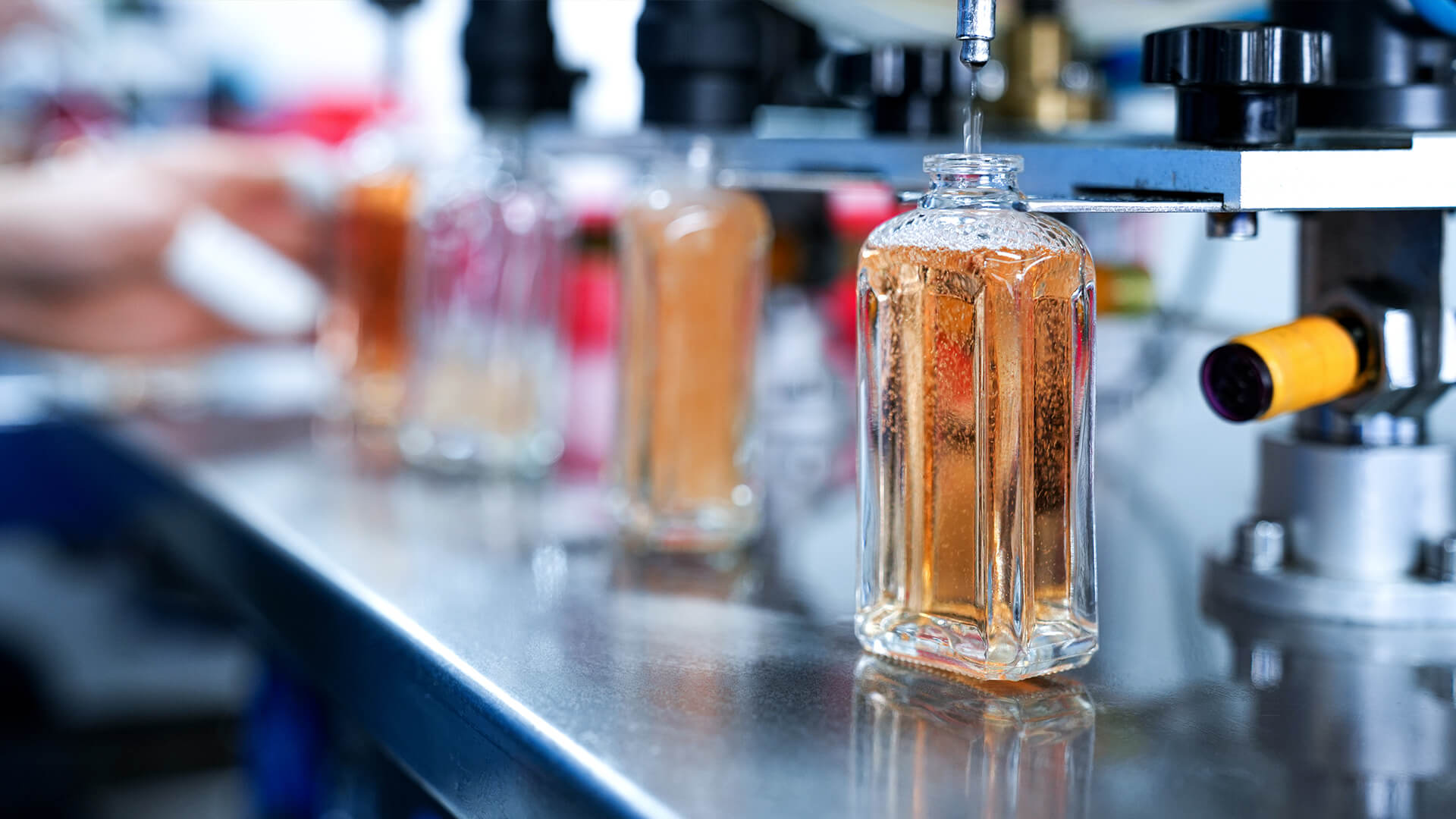Sommario
Attiva/disattivaNel mondo in continua evoluzione delle fragranze, comprendere l'alcol in profumeria è essenziale per i professionisti del settore. L'alcol agisce come solvente e stabilizzatore, migliorando il profilo olfattivo e la longevità delle fragranze. In questo blog, esploreremo i vari tipi di alcol utilizzati dai profumieri, tra cui l'etanolo e i suoi benefici unici.
Allo stesso tempo, riconosciamo la crescente domanda di opzioni senza alcol, come profumi a base di acqua e di olio, che soddisfano i consumatori che cercano alternative più delicate ed ecologiche. Cogliendo sia gli approcci tradizionali che quelli moderni, i titolari di attività di profumi possono fare scelte consapevoli e scoprire nuove opportunità di collaborazione. Collabora con Source of Beauty per inizia la tua linea di profumi che si allinea alle preferenze dei consumatori odierni!
Tipi di alcol nei profumi
L'alcol svolge un ruolo cruciale nella profumeria, principalmente come solvente e vettore per i composti delle fragranze. L'etanolo è il tipo di alcol più comune utilizzato dai profumieri.
1. Etanolo
L'ingrediente chiave dell'alcol per profumi è l'etanolo. L'etanolo è un alcol volatile e incolore derivato dalla fermentazione, distillazione e purificazione di cereali, frutta o canna da zucchero.
È una sostanza altamente volatile che favorisce un'efficiente dispersione delle fragranze. La sua funzione primaria è quella di solvente per la dissoluzione dei composti aromatici. Essendo inodore, non interferisce con il profilo olfattivo delle fragranze.
2. Alcol isopropilico (IPA)
L'IPA viene utilizzata anche nella formulazione e nei test delle fragranze, ma non nei profumi finiti a causa del suo odore pungente.
3. Alcool benzilico
L'alcol benzilico è presente in alcuni oli essenziali come il gelsomino e ylang-ylang. Viene utilizzato come fissativo e solvente per gli ingredienti delle fragranze e ha un odore leggermente dolce. Alcuni profumieri lo usano per aggiungere profondità e longevità a una fragranza.
4. Alcol cetilico e alcol stearilico
Questi due sono usati nelle fragranze a base solida, come i profumi a base di crema. Rendono la soluzione densa e non aggiungono aroma.
6. Alcol denaturato
L'alcol denaturato è etanolo trattato con additivi per renderlo inadatto al consumo ma comunque utilizzabile come solvente nei profumi. L'alcol denaturato è utilizzato principalmente nella produzione su larga scala di profumi commerciali per rispettare le normative ed evitare le tasse sull'alcol.
7. Alcol fenetilico
L'alcol fenetilico è in realtà utilizzato in profumeria per le sue caratteristiche olfattive. È un liquido profumato con un leggero aroma di rosa. È presente nelle rose, nei fiori d'arancio e in altri fiori. Utilizzato nella produzione di profumi, aggiunge una delicata nota floreale alle composizioni di fragranze.
8. Derivati dell'alcol
L'alcol in profumeria comprende anche derivati dell'alcol come esteri ed eteri, a volte utilizzati nei profumi. Gli esteri sono composti organici derivati da alcoli e acidi. Gli eteri sono occasionalmente utilizzati per aumentare la volatilità e l'evaporazione rapida.
Leggi di più su come creare un profumo a base di alcol con olio essenziale.
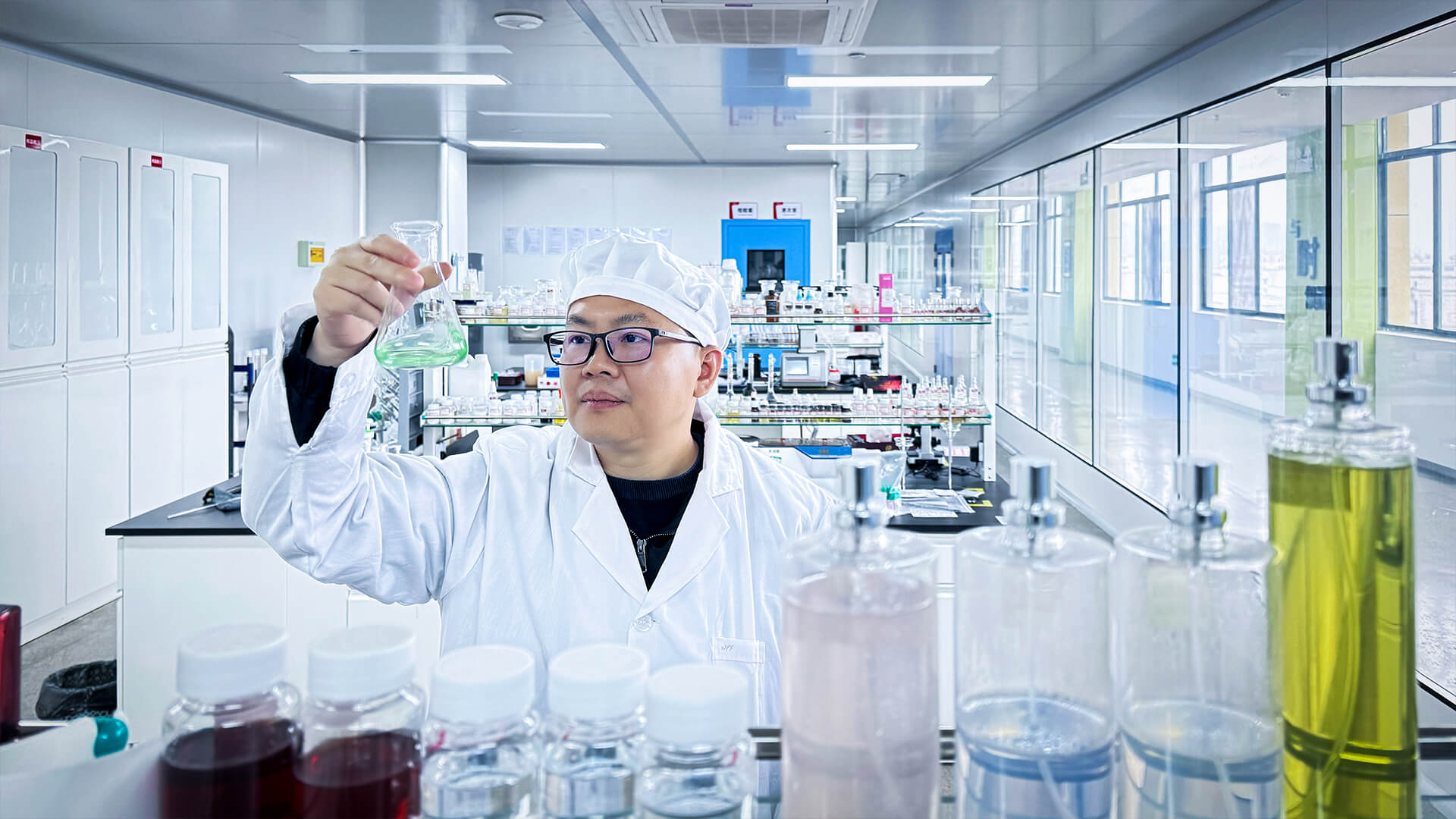
Come viene utilizzato l'alcol nei profumi
Agisce come solvente
Lo scopo principale dell'alcol nei profumi è quello di essere un vettore o solvente per oli essenziali e profumati e altri composti. L'alcol è il mezzo ideale per dissolvere e miscelare i composti aromatici, consentendone una distribuzione uniforme.
Evaporazione
L'elevato contenuto di alcol nei profumi aiuta il profumo a evaporare rapidamente una volta applicato sulla pelle. Con questa evaporazione, le molecole della fragranza vengono rilasciate nell'aria, lasciando un aroma immediato. Nel frattempo, il concentrato di fragranza rimane sulla pelle, venendo lentamente assorbito dalla pelle e dal tessuto dell'abbigliamento.
Agisce come stabilizzatore
Grazie alle sue proprietà antimicrobiche, l'alcol nel profumo impedisce la degradazione degli oli profumati dovuta alla crescita microbica. Quindi l'alcol stabilizza le fragranze preservando l'integrità dei composti della fragranza. Poiché la soluzione rimane invariata nel tempo, il profumo dura a lungo.
Tutti i profumi hanno la stessa percentuale di alcol?
La percentuale di alcol nei profumi determina la loro intensità: un contenuto alcolico più elevato si riscontra nelle formulazioni più leggere, come l'acqua di colonia.
- Eau de Parfum, Eau de toilette ed Eau de Cologne differiscono per la concentrazione di alcol. L'Eau de cologne contiene oli profumati 2-5% e alcol 70-80%, il che la rende una fragranza leggera e rinfrescante adatta per l'uso quotidiano.
- L'Eau de Toilette contiene oli profumati 5-15% e alcol 80-90%. Rispetto all'Eau de Cologne, è un po' più forte, e offre un profumo più distinto che persiste per circa 3-6 ore.
- L'Eau de Parfum ha 15-20% di oli profumati e un contenuto alcolico di 80-90%. La maggior parte delle Eau de Parfum può durare tutto il giorno e fino a sera.
- Extrait de Parfum è il massimo del lusso e dell'intensità. Questo è il profumo più concentrato, contenente oli profumati 15-40% e alcol 70-92%. Solo un tocco dura più a lungo di qualsiasi altra fragranza.
La stragrande maggioranza dei profumi prodotti e venduti è a base di alcol, ma esistono anche soluzioni analcoliche, come i profumi e gli attar a base di olio e acqua.
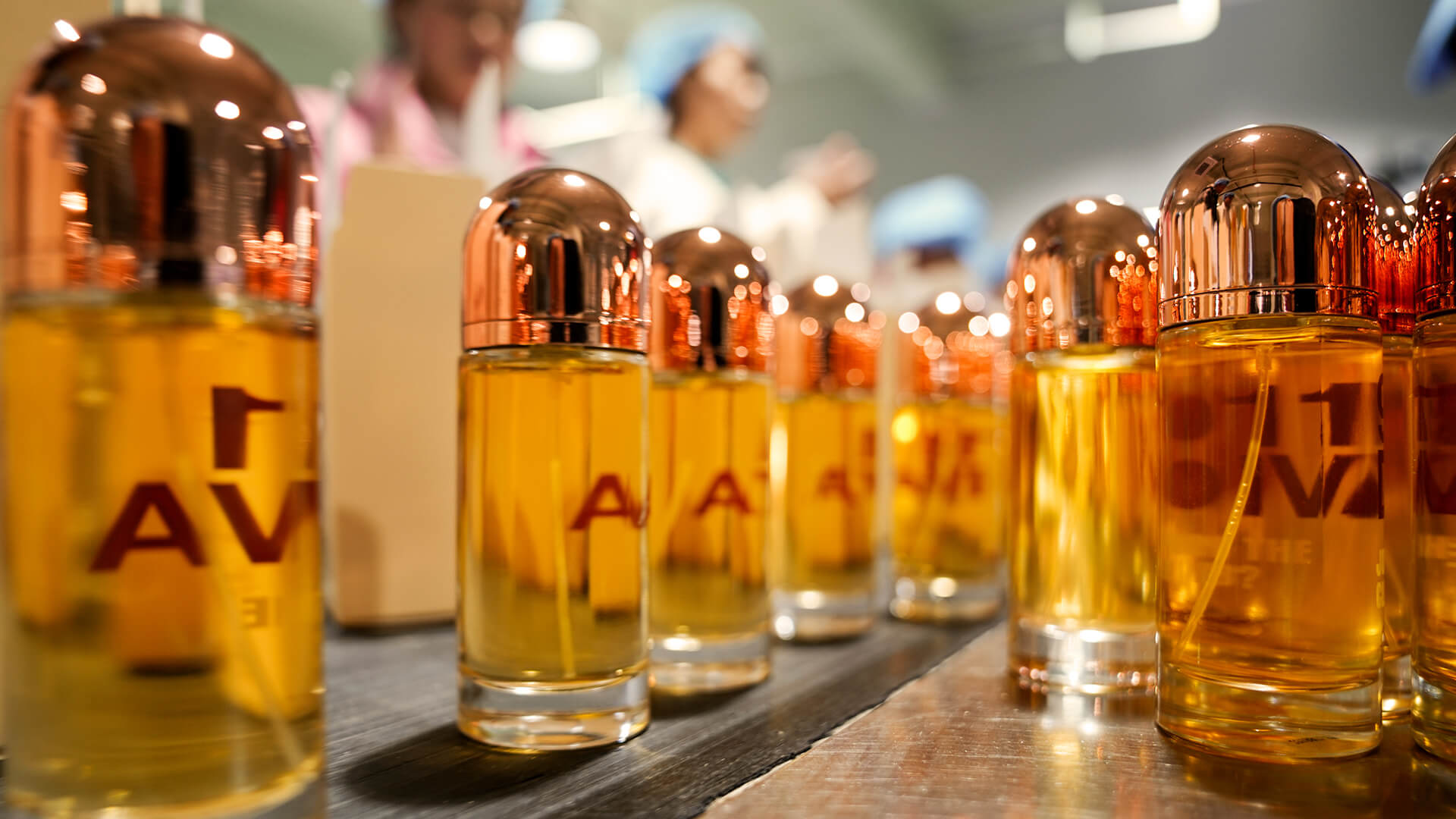
Profumi senza alcol
Profumo a base di olio
I profumi a base di olio spesso usano olio di jojoba, mandorle dolci o olio di cocco frazionato come olio vettore perché questi oli sono inodori e incolori e quindi non influenzano la fragranza. Queste formulazioni sono disponibili in piccole bottiglie rollerball perché sono troppo dense per essere spruzzate.
Attar è un olio profumato concentrato creato e utilizzato da millenni nei paesi del Medio Oriente, dell'Asia meridionale e del Sud-est asiatico. "Attar" significa fragranza. È realizzato distillando sostanze naturali come fiori ed erbe immerse in un olio base come il sandalo. Gli Attar sono ampiamente utilizzati ancora oggi.
Profumo a base d'acqua
I profumi a base d'acqua usano l'acqua come solvente primario. Poiché acqua e olio non si mescolano bene, i profumieri devono usare emulsionanti per creare il profumo, il che ne aumenta il prezzo. I profumi a base d'acqua possono ridurre la quantità di oli aromatici per facilitare il processo di miscelazione,
Attualmente, i profumi a base d'acqua stanno guadagnando popolarità tra i consumatori. Sono ricercati perché sono più rispettosi dell'ambiente e delicati sulla pelle, ma abbastanza forti da mantenere la loro fragranza per tutto il giorno.
Perché i consumatori hanno bisogno di profumi senza alcol?
I profumi senza alcol sono adatti a tutti, ma sono ideali per le persone con pelle sensibile perché sono delicati.
Sono anche sempre più preferiti dai consumatori che stanno diventando più consapevoli dell'ambiente. I marchi stanno rispondendo a questa crescente domanda incorporando fragranze senza alcol nelle loro offerte. Quindi i marchi leader stanno ricreando i profumi a base di alcol esistenti utilizzando un solvente a base d'acqua.
Le fragranze senza alcol vantano già una solida base di utenti: in Medio Oriente e in India esiste una consolidata cultura del profumo che non dipende dall'alcol per la creazione di profumi.
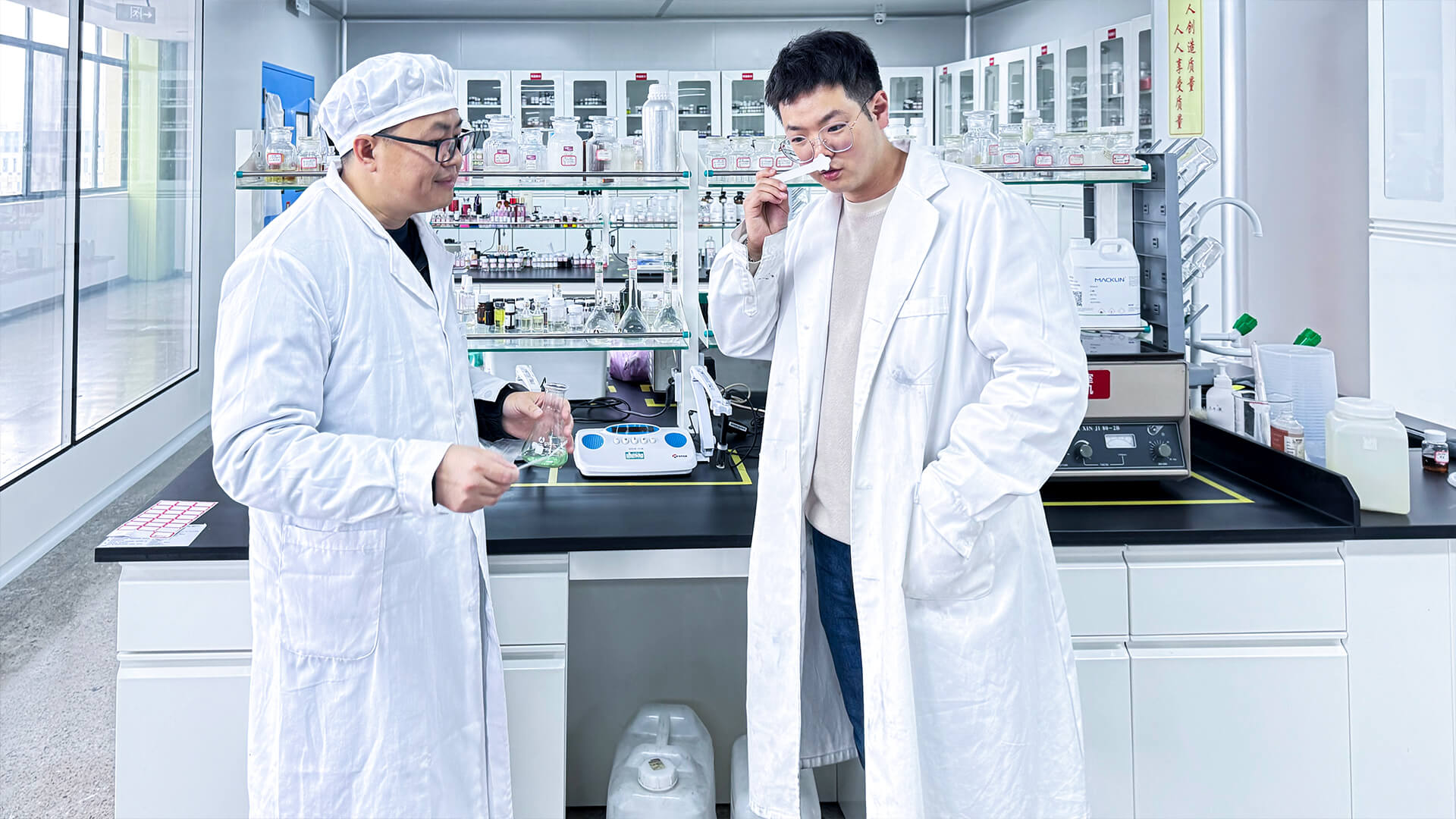
Scelta di una collezione di prodotti di catering per sviluppare le preferenze dei consumatori
Quando si tratta di profumi, è essenziale offrire sia opzioni a base di alcol che analcoliche, delineando chiaramente i vantaggi e gli svantaggi di ciascuna. Le fragranze a base d'acqua, ad esempio, non sono inferiori alle loro controparti a base di alcol; in effetti, spesso forniscono profumi più duraturi.
I profumi a base d'acqua stanno diventando sempre più popolari come alternativa più delicata ed ecologica, soprattutto tra i consumatori più giovani. I distributori di fragranze possono trarre vantaggio da questa tendenza collaborando con produttori che offrono sia opzioni a base di alcol che a base d'acqua.
I profumi analcolici sono adatti a chi è allergico o sensibile all'alcol, così come a chi ha preferenze religiose per le fragranze analcoliche. Molti consumatori apprezzano anche un profumo delicato che persista per tutto il giorno senza essere opprimente.
Per i clienti che cercano una fragranza fresca da indossare tutti i giorni o una fragranza che duri anche durante un evento serale, è utile offrire una gamma di opzioni senza alcol.
Al contrario, per coloro che vogliono fare un ingresso audace, i profumi a base di alcol sono l'ideale. Il contenuto di alcol consente una proiezione e una scia più pronunciate, con conseguente profumo più potente. Includere una varietà di fragranze a base di alcol nella tua linea di prodotti attirerà i clienti che cercano di fare un'impressione duratura.
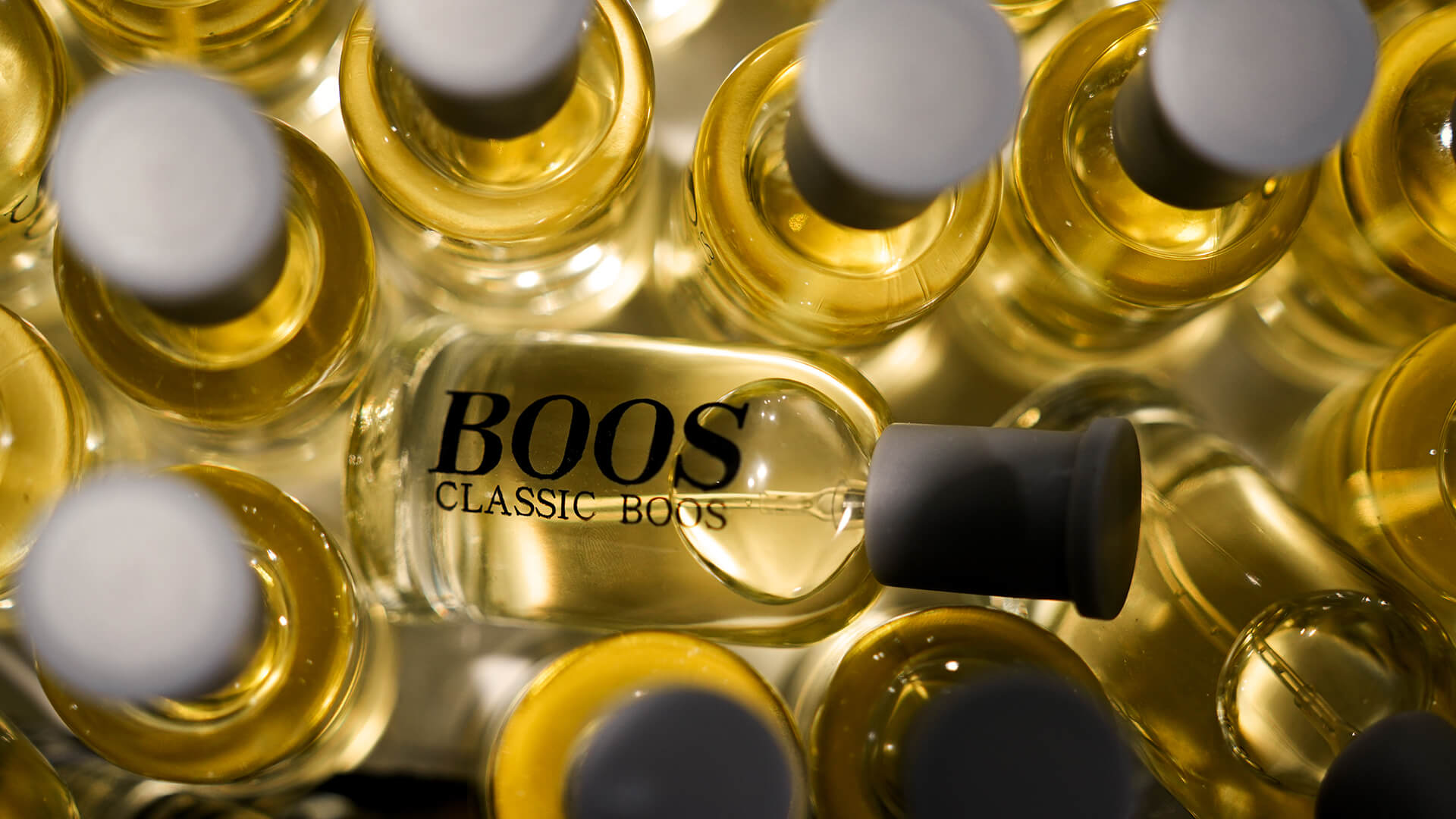
Qual è la posizione di Source of Beauty in merito all'uso di alcol nei profumi?
L'alcol può essere classificato in categorie industriali, chimiche e di qualità alimentare. In Source of Beauty, diamo priorità alla qualità utilizzando alcol di qualità alimentare di prima qualità, specificamente derivato dal mais. Ogni aspetto della nostra selezione è incentrato sui più elevati standard di qualità e sicurezza.
Spesso si critica il fatto che l'alcol possa avere odori aggressivi che possono influire sulla qualità della fragranza e sul profilo inviato. Source of Beauty affronta il problema utilizzando:
1. Alcol alimentare.
2. Laboratori professionali per sviluppare formule con solventi di alta qualità, eliminando tutti gli odori sgradevoli.
Le ragioni degli odori aggressivi nei prodotti spesso derivano da una scarsa selezione di alcol, da fragranze sgradevoli o da una lavorazione scadente, non dall'alcol. Source of Beauty evita tutti e tre questi problemi.
In Source of Beauty, la maggior parte dei nostri profumi sono a base di alcol, beneficiando della capacità dell'alcol di agire come solvente, miscelando e stabilizzando i composti aromatici per garantire una dispersione uniforme della fragranza. I nostri profumi beneficiano della rapida evaporazione dell'alcol, disperdendo le molecole aromatiche nell'istante in cui viene applicato. Il nostro uso di alcol tiene anche a bada i microrganismi batterici, aiutando a preservare la fragranza e prolungarne la durata di conservazione.
Per ottenere i migliori risultati, Sobfragrance utilizza solo alcol di mais di qualità migliore, conforme alle severe normative del settore. Dietro una semplice bottiglia di profumo si nasconde l'accumulo di tempo e competenza.
Conclusione
Alcool e oli essenziali sono gli ingredienti principali dei profumi. La quantità di alcol determina l'intensità della fragranza. È leggero e volatile, contribuendo alla leggerezza e alla dispersione delle note della fragranza. Essendo un potente solvente che evapora rapidamente, è responsabile della scia di un profumo e della sua capacità di essere spruzzato nell'aria intorno a te.
Source of Beauty produce sia opzioni a base alcolica che analcoliche per i nostri partner commerciali. Collabora con noi per rimanere al passo con le ultime tendenze e creiamo insieme la tua prossima fragranza vincente.

